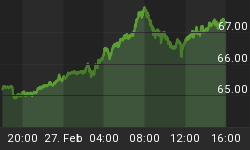The Greeks have now spoken, or at least some of them have. This morning, in the cradle of democracy the representatives of the People defied 80% of those people and voted in favor of a more-severe (one might even call it Spartan) austerity. The outcome of the vote was not in much doubt; but it bears noting that this is only half of the deal. Tomorrow, the parliament votes on another key piece of legislation that, among other things, details some of the specific fiscal measures that were passed in principle today. And wouldn't that be a kick in the pants if it was the second measure that didn't pass?
However, it is expected to pass as well, and that means we will head into a partial day on Friday and a long weekend (in the U.S.) with all of the good news out and only worries remaining. Worries such as:
...whether the various banks will agree to roll over their maturing debt in sufficient amounts.
...whether there is any chance that Greece will actually implement these reforms.
...whether any person in authority will actually be so impolitic as to point out that possibility.
...whether the Troika will be sufficiently satisfied to release the current tranche.
...whether the Troika will be able to produce a follow-on tranche that is necessary.
...and whether the ratings agencies will swallow all of this baloney.
I am not saying that any of these things are going to be resolved over the weekend, but the fact that there are so many more bad things left to happen now that the good things are out of the way makes me inclined to be short (equities) headed into the weekend. But I am not the only one, and I suspect that will actually mean I won't get the chance to do so at good prices. With liquidity due to be thin on Friday, I suspect prices will turn tomorrow afternoon if not before.
The extent of the response already has been pretty impressive, considering that no one seems to be particularly in denial about the fact that Greece is, eventually, going to default and/or leave the Euro. It is really just a matter of time, and of seeing what the best way is to contain the damage and prevent other dominos from falling. I haven't heard anyone suggest seriously that "no, Greece can actually make it through this." I think that is because if your math is that bad, the only job you are qualified to do is to hold elected office or work for the IMF or ECB.
Now, one of the side effects of the Greek crisis moving (fitfully and impermanently) to the back burner is that the spotlight can now be turned on the U.S. and its debt problems, and the apparent impasse in the debt ceiling talks. Our leaders have been recently "laboring" in relative obscurity, and unfortunately that means that in order to get their column-inches they've been drawing lines in the sand. I don't recall reading in Getting To Yes that the strategy of drawing a line in the sand is conducive to forging a durable agreement, but it has worked for Europe. Well, it ought to be a fine Independence Day holiday weekend.
The illiquid market moves today included the 0.8% further rally in stocks, the 8bp further selloff in the 10y note (3.11% now), and a 4% rebound in gasoline prices. Happy driving!
Speaking of rising prices, that 8bp rise in the 10y yield came entirely from a rise in inflation expectations as the 10y TIPS note was unchanged on the day. In fact, the important metric of 5y, 5y forward inflation has been rising quite rapidly recently as the chart below (Source: Enduring Investments) shows.

5y5y inflation has spiked - but part of it has nothing to do with inflation expectations.
Now, ordinarily that sort of spike in the variable the Fed watches - actually, they watch an awkward one based on TIPS, which is almost always lower since breakevens are below the more-accurate swaps measure - would ordinarily be a grave concern. It isn't as important in this case, however. There is a well-circulated story about a particular firm that finds itself unwinding a 5y-30y inflation curve flattener - which means they are selling inflation in the 5y area and buying it back in the 30y area.
Pressing down the 5y inflation point serves to increase the 5y, 5y forward if the 10y point is held constant. The 5y, 5y is calculated as:
![]()
(Try it. The intuition is that if the amount of money I would have at the end of ten years remains the same, and the amount I earn for five years drops, then I need to reinvest that lower amount at a higher rate to get to that same 10-year pool of money).
Consequently, this rise in the 5y, 5y forward is less important than it might seem at first. Also, as you can see from the chart, as recently as late 2009 the 5y5y was higher, so 3.25% isn't yet near any kind of danger zone - especially with the economy quite weak.
On Thursday, the economic releases on the docket are Initial Claims (Consensus: 420k vs 429k last) and the Chicago Purchasing Managers' Report (Consensus: 54.0 from 56.6). But the important data (Employment) is next week anyway...and there is ample uncertainty over the weekend. Look out for increasing illiquidity as the day wears on - remember, it's quarter end, and followed by a half-day on Friday and a three-day weekend. Risk budgets will be tight, and that might provoke bigger-than-expected moves if something breaks.















